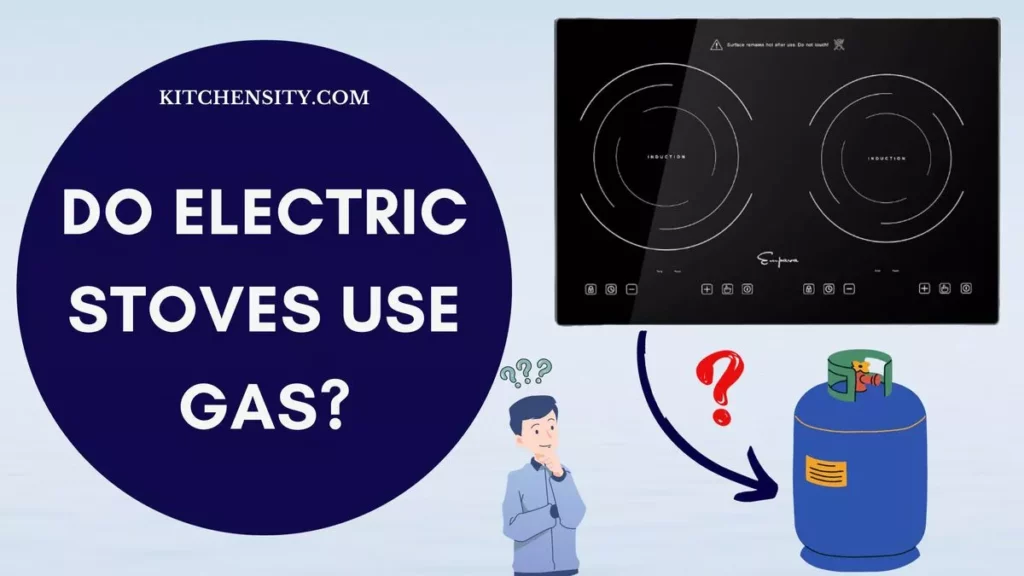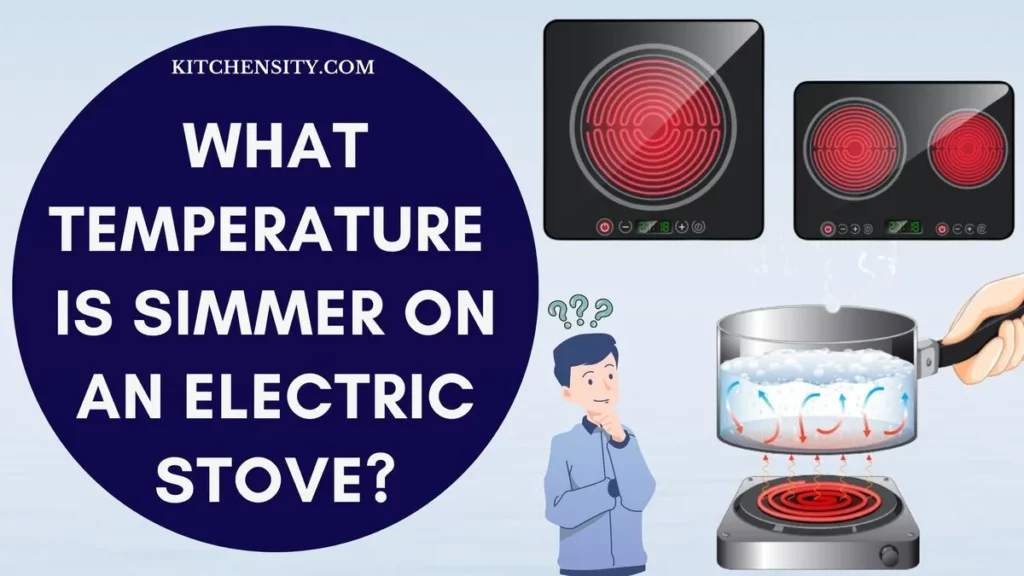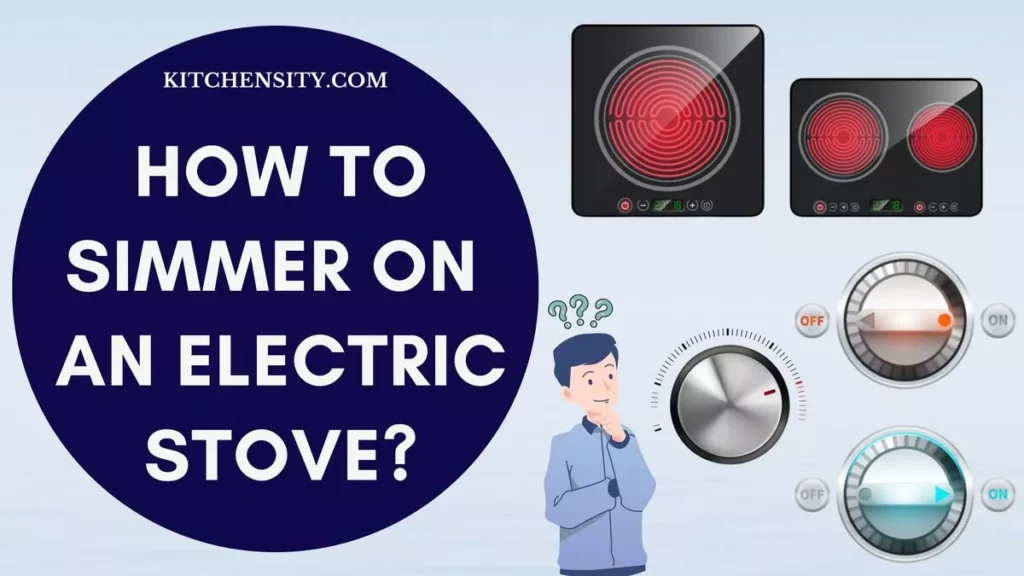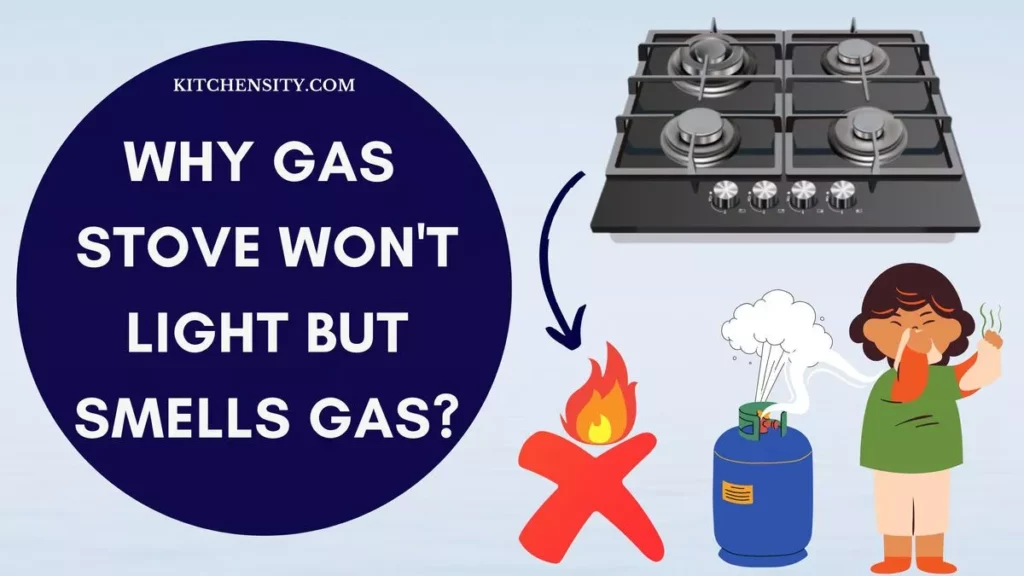No, electric stoves do not use gas. They rely entirely on electricity for cooking. These stoves have heating elements, either coils or ceramic, which produce heat when an electric current passes through them. Unlike gas stoves, there are no open flames or hidden gas connections in electric stoves. They are safe, efficient, and easy to use, making them a popular choice in modern kitchens.

Table of Contents
- 1 How Electric Stoves Work? [Mechanism]
- 2 Advantages Of Electric Stoves Over Gas Stoves (Electric Stoves Vs Gas Stoves).
- 3 Can An Electric Stove Run On Gas?
- 4 How Do I Know If My Stove Is Gas Or Electric?
- 5 Dispelling Common Myths: Electric Stoves and Gas Connection.
- 6 Final Thoughts: Do Electric Stoves Use Gas?
- 7 FAQs: Answering Your Queries.
- 7.1 Do Electric Stoves Produce As Much Heat As Gas Stoves?
- 7.2 Can I Convert My Electric Stove Into A Gas Stove?
- 7.3 Are Electric Stoves Safer Than Gas Stoves In Terms Of Potential Gas Leaks?
- 7.4 Can I Use My Electric Stove During A Power Outage?
- 7.5 Do Electric Stoves Consume A Lot Of Electricity?
- 7.6 Are Electric Stoves More Environmentally Friendly Than Gas Stoves?
- 7.7 Can I Use Any Cookware On An Electric Stove?
How Electric Stoves Work? [Mechanism]
Electric stoves, also known as electric cooktops or ranges, work by converting electricity into heat to cook food. This conversion is facilitated by heating elements, which are usually made from materials like coils or ceramic, known for their high resistance to electricity.
When you turn on the electric stove, electricity flows through these heating elements. Due to their high resistance, the electrical current encounters resistance, and as a result, the elements begin to heat up. This process is akin to how an incandescent light bulb produces light, but in this case, the energy transforms into heat.
The control panel allows you to adjust the heat output of the heating elements. Some stoves use a thermostat to maintain a constant temperature, cycling the elements on and off as needed. This precise temperature control is one of the advantages of electric stoves, allowing for efficient and even cooking.
Electric stoves are compatible with a variety of cookware types, including pots and pans made of stainless steel, cast iron, aluminum, and copper. For induction cooktops, which use magnetic fields to heat cookware, you’ll need pots and pans with magnetic properties.
Also Read – How To Clean Electric Stove Burners And Drip Pans?
Types Of Heating Elements Used In Electric Stoves.
There are several types of heating elements used in electric stoves, each with its characteristics and advantages. Here are the main types:
- Coil Elements: Coil heating elements are made of metal coils, typically made of nichrome (an alloy of nickel and chromium) or other heat-resistant materials. These elements are visible on the cooktop surface and heat up quickly, providing even heat distribution.
- Ceramic Elements: Ceramic cooktops have heating elements embedded beneath a smooth, ceramic glass surface. These elements heat up rapidly and provide a sleek, easy-to-clean cooking surface. They are often found in modern electric stoves.
- Solid Disk Elements: Solid disk elements are made of a solid, heat-conducting material, such as cast iron or stainless steel. These elements heat up slowly but retain heat well, making them ideal for cooking methods that require consistent heat, like simmering or slow cooking.
- Halogen Elements: Halogen heating elements use halogen gas to increase the efficiency of the heating process. These elements heat up quickly and are often found in high-end electric stoves for their rapid response and energy efficiency.
- Induction Elements: Induction cooktops use electromagnetic fields to heat the cookware directly, rather than the cooktop surface. Only cookware with magnetic properties, such as cast iron or magnetic stainless steel, can be used on induction cooktops. Induction heating is fast, efficient, and offers precise temperature control.
Also Read – How To Clean An Electric Coil Stove Top?
Advantages Of Electric Stoves Over Gas Stoves (Electric Stoves Vs Gas Stoves).
Electric stoves offer several advantages over gas stoves. They are considered safer due to the absence of gas leaks and open flames, reducing the risk of burns or fires. Also, electric stoves are easier to use with simple controls and quick heating capabilities. The even heating provided by electric stoves ensures more consistent cooking results. Maintenance is also easier as electric stoves have a smooth, flat surface that is easy to clean.
They can be more energy-efficient, especially with induction cooktops, and are often more budget-friendly to purchase and install. Electric stoves are also compatible with a wide range of cookware, making them versatile for different cooking needs.
Here are some of the key advantages:
- Electric stoves are often considered safer than gas stoves because they eliminate the risk of gas leaks. There is also no open flame, reducing the risk of burns or fires.
- They are typically easier to use than gas stoves. They often have simple controls and heat up quickly, making them convenient for everyday cooking.
- Electric stoves provide more even heating than gas stoves, which can lead to more consistent cooking results.
- Electric stoves are generally easier to clean and maintain than gas stoves. The smooth, flat surface of electric cooktops is easy to wipe down, and there are no grates or burners to clean.
- They can be more energy-efficient than gas stoves, especially if you have access to cheap electricity. Induction cooktops, in particular, are known for their energy efficiency.
- They are often less expensive to purchase and install than gas stoves, making them a more budget-friendly option for many homeowners.
- Electric stoves are compatible with a wide range of cookware, including flat-bottomed and non-magnetic pots and pans, whereas gas stoves require specific cookware suitable for open flames.
Also Read – Can You Replace Burners On An Electric Stove?
Can An Electric Stove Run On Gas?
No, an electric stove cannot run on gas. Electric stoves are designed to operate solely on electricity. They function by using electric heating elements, either coils or ceramic, to generate heat when an electric current passes through them. These heating elements are specifically designed to work with electricity and do not have the necessary components to utilize gas as a source of energy.

Attempting to run an electric stove on gas would not only be ineffective but also extremely dangerous. Gas stoves and electric stoves are fundamentally different appliances, and they require specific infrastructure and safety measures to operate correctly. Mixing the two energy sources can lead to gas leaks, fire hazards, and other serious safety risks.
If you’re looking to switch from an electric stove to a gas stove or vice versa, it’s important to consult with a professional technician or installer who can ensure the proper installation and safety protocols are followed.
According to the U.S. Department of Energy, “Electric stoves offer a clean and convenient cooking solution, as they do not require gas lines and can be powered by renewable energy sources, reducing carbon emissions.”
Also Read – How Hot Do Electric Stove Burners Get?
How Do I Know If My Stove Is Gas Or Electric?
Determining whether your stove is gas or electric is relatively straightforward. Here are a few methods to help you identify the type of stove you have.
- Look For The Heating Elements:
- Electric Stove: If your stove has flat, coiled, or smooth ceramic surfaces on the cooktop, it is most likely electric. These surfaces are the heating elements used in electric stoves.
- Gas Stove: Gas stoves have open burners with grates on top. You can lift the grates to see the burner elements where the flames come out. If you see these elements, your stove is gas-powered.
- Check The Controls:
- Electric Stove: Electric stoves have controls that include temperature settings and sometimes a digital display. These controls regulate the flow of electricity to the heating elements.
- Gas Stove: Gas stoves typically have knobs that you turn to ignite the burners. If your stove has knobs with flame symbols and can be lit with a match or lighter, it’s a gas stove.
- Inspect The Power Source:
- Electric Stove: Look behind the stove. If it’s plugged into an electrical outlet, it’s electric. Electric stoves require a power supply to function.
- Gas Stove: Gas stoves are connected to a gas line. Check behind the stove for a flexible gas hose or a rigid gas pipe connected to a gas shut-off valve.
- Review The User Manual:
- Electric Stove: The user manual of your appliance will clearly state if it’s an electric stove. You can often find the manual online by searching for the model number of your stove.
- Gas Stove: Gas stoves are usually labeled as such in the user manual. It might also provide instructions for lighting the burners manually in case of power outages.
- Consult A Professional: If you’re still unsure, it’s best to consult a professional technician or an appliance expert. They can quickly identify the type of stove you have and provide any necessary information or assistance.
By using these methods, you can confidently determine whether your stove is gas or electric, allowing you to operate it safely and efficiently.
Also Read – Can You Replace Burners On An Electric Stove?
Dispelling Common Myths: Electric Stoves and Gas Connection.
Myths like electric stoves have hidden gas connections or can somehow run on gas. Let’s dispel these myths and shed light on the reality of electric stoves and their gas connections.
Myth 1: Electric Stoves Have Hidden Gas Connections.
Electric stoves operate solely on electricity. They do not have any hidden or covert gas connections. Unlike gas stoves, which require a direct supply of natural gas or propane, electric stoves rely entirely on electrical power to generate heat. The heating elements in electric stoves, whether coils or ceramic, function by conducting electricity and converting it into heat. There are no concealed gas lines, valves, or burners within an electric stove.
Also Read – Are Electric Stove Burners Interchangeable?
Myth 2: Electric Stoves Can Run On Gas.
Electric stoves are engineered specifically for electricity. Attempting to run an electric stove on gas would not only be futile but also extremely hazardous. The components of an electric stove, including the heating elements and controls, are designed to function with electricity. Introducing gas into an electric stove can lead to gas leaks, fire hazards, and damage to the appliance. Moreover, mixing gas and electrical components poses a severe risk to both the appliance and the individuals nearby.
Also Read – Why Electric Stoves Take Forever To Boil Water?
Final Thoughts: Do Electric Stoves Use Gas?
In conclusion, electric stoves do not use gas. Instead, they operate solely on electricity, converting electrical energy into heat energy through various types of heating elements. This distinction is important for safety considerations, as electric stoves eliminate the risk of gas leaks and open flames associated with gas stoves. Also, electric stoves offer several advantages, including ease of use, even heating, and compatibility with a wide range of cookware, making them a popular choice for many households.
Also, they make cooking a breeze. You get instant heat, and the temperature control is super precise. They distribute heat evenly, so your food cooks perfectly every time. When you’re cooking on your electric stove, you know that you’re using a modern, safe, and efficient appliance. It’s not just a stove; it’s a gateway to easy, enjoyable cooking experiences.
Also Read – How Long Can You Leave An Electric Stove On Without Risking A Fire?
FAQs: Answering Your Queries.
-
Do Electric Stoves Produce As Much Heat As Gas Stoves?
Yes, electric stoves can produce as much heat as gas stoves, ensuring efficient cooking.
-
Can I Convert My Electric Stove Into A Gas Stove?
No, electric stoves cannot be converted into gas stoves. They are fundamentally different appliances designed for specific energy sources.
-
Are Electric Stoves Safer Than Gas Stoves In Terms Of Potential Gas Leaks?
Yes, electric stoves are safer as they do not use gas, eliminating the risk of gas leaks, and making them a secure choice for households.
-
Can I Use My Electric Stove During A Power Outage?
Unless your electric stove has a backup power source, it won’t work during a power outage. Gas stoves can be used in such situations since they don’t rely on electricity.
-
Do Electric Stoves Consume A Lot Of Electricity?
Electric stoves are designed for efficiency and do not consume excessive electricity. Their power usage is comparable to other household appliances.
-
Are Electric Stoves More Environmentally Friendly Than Gas Stoves?
Yes, electric stoves are considered more environmentally friendly as they produce no direct emissions in your home, contributing to cleaner indoor air quality.
-
Can I Use Any Cookware On An Electric Stove?
Yes, electric stoves are compatible with a wide range of cookware, ensuring versatility in your kitchen.
🔧 Stove Expert | 🔥 Gas Guru | 🏠 DIY Enthusiast | 🎨 Painter Extraordinaire
John Davis is your go-to source for all things stoves, from expert repairs to maintenance tips. With a deep understanding of gas systems, including natural and propane, John ensures your kitchen stays cooking safely. His passion for DIY home and kitchen projects shines through his stunning paint transformations. Trust John to bring warmth and functionality to your home, one stove at a time.






